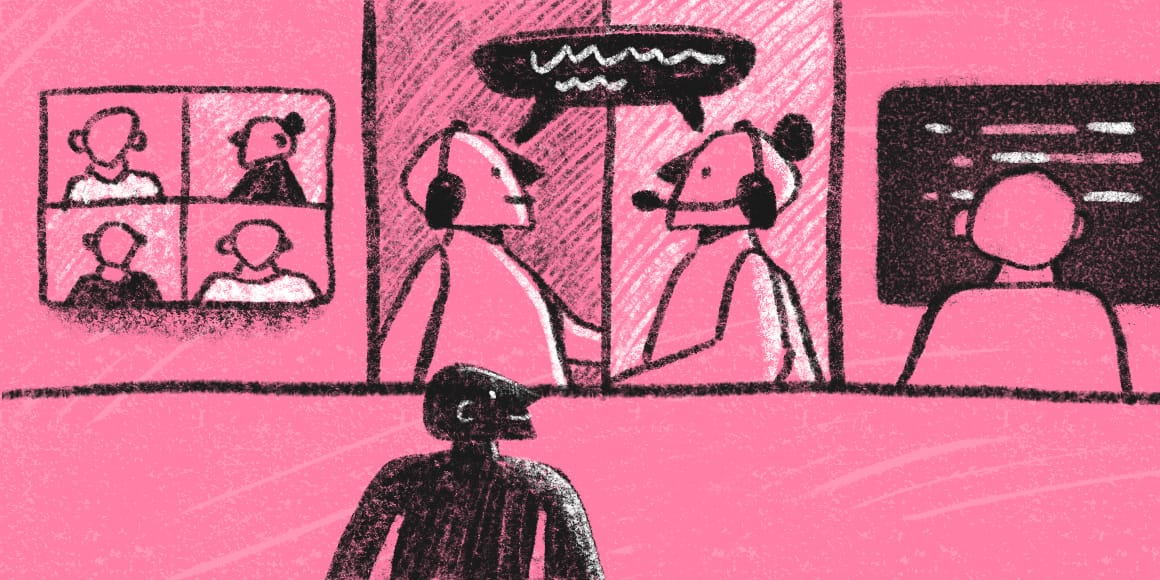10 Tips for Facilitating a Project Retrospective

Okay, so your project has ended. You did it. It’s been merged in! Pushed up to production, and shipped out to the real world.
The client is happy, and the team can finally relax and wipe the sweat from their brows, and say—“wow, that's a wrap!” And then, it sets in, you start to wonder: what’s next? But before you turn to whatever is next, instead, after the congratulatory high fives, you should take some time to reflect on your completed project, and discuss the key takeaways that can be turned into learnings for a future project.
Want to know how we do it? Here are ten tips that can help you facilitate your next project retrospective:
1. Bring everyone from the project together.
While the number of people on a project can fluctuate depending on the deliverables in any given week, it's important to bring every contributor together when it comes to the end of a project. Doing so gives everyone involved an equal opportunity to share their experiences as a team, and no one's contribution is left out.
2. Facilitate the retrospective as soon as possible.
Don't wait. One project ending means another is ready to start, so it's best to hold your retrospective soon after the project has finished. Doing so helps ensure everything is fresh and top of mind for everyone.
The goal of a retrospectives is to identify what did and didn't work throughout a project, and obtain key takeaways that can be used for future projects.
3. Set expectations!
Once the finish line is crossed, let your team know that the retrospective is all about commemorating and resurfacing key takeaways for a focused discussion. It's an opportunity to intentionally reflect on a project one last time with a focus on actionable outcomes.
As with any meeting or workshop, sending an agenda a few days in advance goes a long way to set everyone up for success. Encourage your colleagues to think about what they've learned during the project, identify areas where processes could be improved, and be prepared to voice those ideas during the group discussion.
4. Use conversation starters or prompts to structure a discussion.
One helpful way to get the conversation going is for the facilitator to come prepared with a handful (3-5) of conversation starters to help focus the discussion.
Tighten uses Trello for everyday project organization, and we are 100% remote, so when I am the facilitator, I share my screen over Zoom, and spin up a new Trello board–using a Kanban board style–that lists out one conversation starter in each column, and then document each person's response. This gives us an on-the-spot visual while we chat about similar patterns and group consensus.
Here are some of the conversations starters that we use:
- During the project, I was proud of:
- During the project, one of the challenges that I experienced was:
- One thing we should start, stop, or continue doing is:
Think about timeboxing each conversation topic, so the conversation can have time for multiple topics, and stay focused.
And remember, it's okay for the discussion to veer away from your conversation starters. They’re not set in stone and meaningful discussions change course organically. The most important thing is to make it easy for everyone to participate without feeling overwhelmed or put on the spot.
5. Provide everyone an equal opportunity to speak.
This should be a comfortable and safe space for everyone. Everyone should be prepared in advance to participate and share ideas. This is a discussion of equal parts celebrating and lessons learned. Go ahead, go around the room, backward and forwards, and equally balance the time so it's a group discussion, not a monologue from a single person.
6. Don't forget to celebrate.
Nobody enjoys being ushered into another project without pause to all of their hard work on their project that just wrapped up. It does a disservice to everyone's hard work. You couldn't have done it without each other, and remember to celebrate those valuable moments. My colleague, Tammy, always brings a balloon filled with confetti that we can pop at the end of the meeting as a way to celebrate the completed project. Huzzah!
7. Recap the most important feedback items.
As a facilitator, one of your jobs is to aggregate the recurring themes and summarize the actionable learnings into a brief summary that can be shared with both your project team and teammates that weren’t on the project. As new projects move in quickly, documenting this for all projects leaves a helpful paper trail everyone can refer back to—and depend on—when setting up new project structures and processes.
8. Solicit client feedback.
Outside of the project setting and internal team retrospective, it's good practice to solicit additional client feedback and evaluation after a project ends and celebrate the journey that you shared together. Having a loop of feedback and collaboration always helps to build an updated project strategy for the future. It ultimately makes the next project run even more smoothly and builds on your working relationship with your client.
9. Share learnings with the wider internal team.
Help your colleagues learn from one another. Of course, not everyone from the whole team can be on a single project, but project learnings—if technical, process-building, or another area—could apply to colleagues on their own projects, that you may or may not also be on. Sharing your key takeaways with everyone is beneficial as they don't start and stop with any individual team.
10. Enjoy the moment!
It’s a wrap! Great work! Take a walk outside before you move onward to the new project.
Conclusion
We hope that some of these ideas help you lead a meaningful project retrospective. If you have other ideas, we’d love to hear about them!
in your inbox:
let’s talk.
Thank you!
We appreciate your interest.
We will get right back to you.
